SBIFF ’09: The Mid-Fest Report
A View from the Middle of the 10-Day Santa Barbara International Film Festival
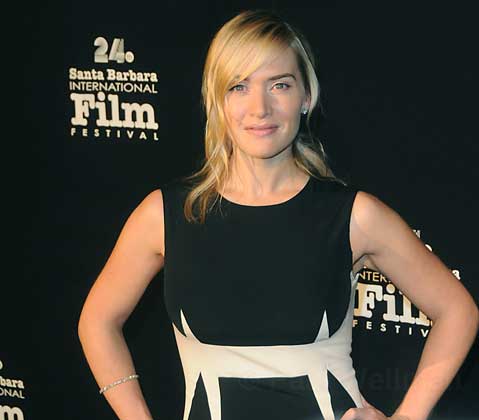
In the 2009 edition of the Santa Barbara International Film Festival-number 24 and counting-one novel twist appears before each of the 200-plus screenings. This year, the normally decorative introductory SBIFF trailer consists of numerous snippets of commentary from average festival-goers and movie buffs among us, quipping on what the movies mean to them. Directed by Dana Morrow in a classic black-and-white format and with cool retro music wafting from hepcat locals Les Gendarmes du Swing, the trailers are full of charm and local/global relevance. People we know and have seen around town are up there on the big screen, mimicking lines from favorite movies and extolling the medium that binds us like no other.
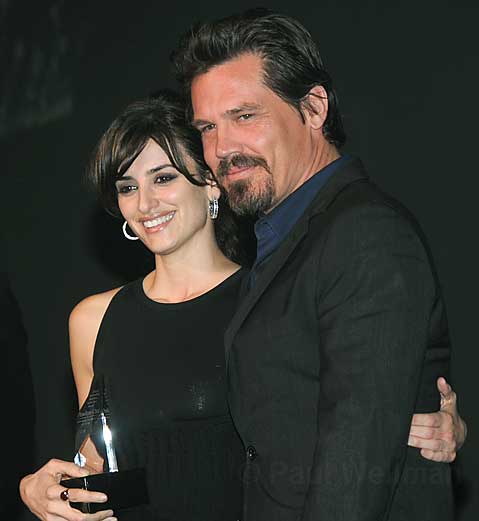
At the end of one compilation, the genial “people’s” exec director Roger Durling explains that the festival “brings people together.” True, that.
One odd point with the trailers, though, has to do with the focus of the commentaries, invariably dealing with the Hollywood machinery. In fact, despite the annual presence of Hollywood celebrities in tributes-this year, including Oscar season hot topic figures Clint Eastwood (tonight at the Arlington), Kate Winslet, Penelope Cruz, Mickey Rourke (Friday at the Arlington), and David Fincher (also Friday)-the real treasures are contained in the “international” part of the equation. The “I” in SBIFF ought to be bold-faced.

It has always been thus, going back to the inaugural fest (as memory serves) and probably always will. Certainly, the first weekend’s films bore out the tradition once again. SBIFF is at its strongest and worthiest when bringing the world’s cinema to us, and us out into the world. It takes us places. Take, for example, Kazakhstan, and its remarkable Academy Award nominee, Tulpan, directed by Sergei Dvortsevoy.
A raw and sweet film following the lives and travails of a sheepherding family on the steppe, Tulpan is a great example of vernacular, regional cinema, and how a well-made film can transport us to another place and way of being. With its particular sense of pace and style-rough and handheld, but also with sweep and intimacy-the film enhances the very landscape and culture it depicts. We feel the arid dust and the goopy placenta in its striking, you-are-there sheep birth scene, but more importantly, gain access to the emotional interior worlds of its characters. Don’t expect this in a theater near you anytime soon, but it’s a great “small” film.
From a far more polished and elegant end of the style spectrum, Swedish director Jan (The Emigrants, The New Land) Troell has made a masterful, wistful, and glowing film in Everlasting Moments, about a Swedish family early in the 20th century. Specifically, the story focuses on a proto-feminist, long-suffering mother (Finnish actress Maria Hieskanen, in one of this festival’s finest performances) who finds expressive release in photography.
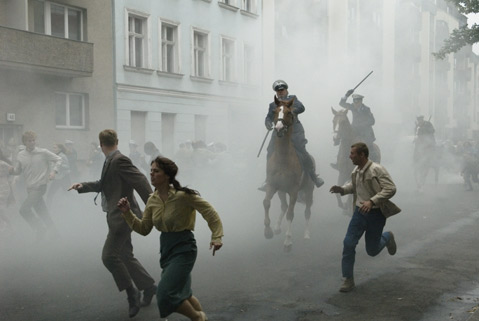
With his fascinating Oscar-nominated film The Baader Meinhof Komplex, German director Uli Edel touches on yet another great virtue of the film medium: its ability to compact a chapter of history into a dramatic and reportorial, one-sitting package. Here, we follow the twisted tale of the infamous revolutionary movement, later known as the RAF (Rote Armee Fraktion), launched in the late ’60s, through its high ideals and bloody, criminal high jinx. We’ve seen cultural references to the radical group before, in Fassbinder films, The Lost Honor of Katherina Blum, and in paintings by Gerhard Richter, but never in such a riveting, condensed, and balanced portrayal.
In another of the festival’s high points, Edel was in the house for the screening on Sunday afternoon for a Q&A. He explained that he was entrenched in the generation that rebelled against American imperialism, the Vietnam War and capitalist excess, and was a fellow film student-along with famed cinematographer Michael Ballhaus-with “Baader Meinhof gang” leader Holger Meins, whose death in prison made him an early martyr. But, as Edel stressed, the massive support for the more innocent actions of Baader Meinhof fell sharply once the blood-letting violence began.
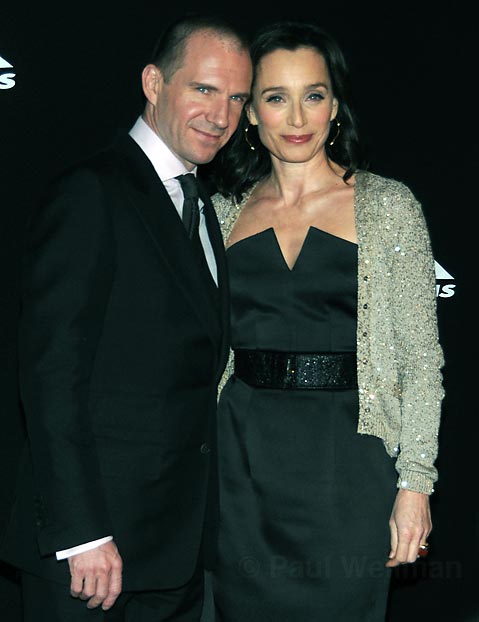
Discussing the rise of German films dealing with its own troubled history, at least among those German films that make it to these shores, Edel commented, “It has to do with our problematic past. That this group of filmmakers became so fascinated [with history] had to do with fascisms. I’m a post-war child, and more than just rebels against our parents, we were blaming our parents.” In other words, there is a cathartic house-cleaning element involved, which has resulted in some great films from the German scene-including the Oscar-nabbing The Lives of Others (seen at SBIFF two years ago), along with the stunning Downfall.
Regrettably, the annual “Director’s Panel” was cancelled on short notice, with scheduling cited as the problem, but the annual “It Starts with the Script” panel pulled in the usual packed house at the Lobero. Southern California, as we know, is crawling with wannabe screenwriters. I wouldn’t be surprised if I, too, am a dormant screenwriter, just waiting to emerge. For now, however, I’ll keep my day job.
Speaking of that, the panelist with the dry, cowboy wit, Robert (Appaloosa) Knott, explained his entry into the screenwriting business as accidental. “I was working in the oil fields, and I got fired. So I fell back on the only other thing I could do, which is this crap,” he said.
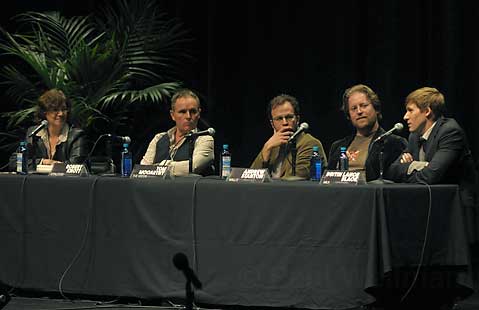
In a panel also including non-mainstream creators Tom (The Visitor) McCarthy and Dustin Lance (Milk) Black, the box office star clearly was writer/director Andrew (Wall-E) Stanton, but he rightly expressed his belief-proven with his masterful animated jewel-that “you can make a popcorn movie with the same integrity you assume is in an arthouse film.”
Screenings and festival doings continue through this weekend, and are well worth exploring and avoiding one’s usual routine to catch. As of press time, the festival had delivered a particularly high percentage of impressive films, from far and wide. The hot list (so far) includes A Woman in Berlin, Inventing L.A.: the Chandlers and their Times (about the birth of a city and a newspaper, and the rise and fall of a family), Yes Madam, Sir, The Ghost, Ocean, Zift (“vulgarian Bulgarian” black comic film noir), and Loss.
Doing the film festival is dangerously habit-forming, but we only get one chance a year. Bosses and loved ones will forgive us, sooner or later. Do get obsessive, but hydrate, show up early, and don’t forget to eat (for fast and cheap, check out Chipotle and the Pizza Slice place in Paseo Nuevo). And listen to the buzz on street level, including from people you’ll be seeing in the SBIFF trailer.



